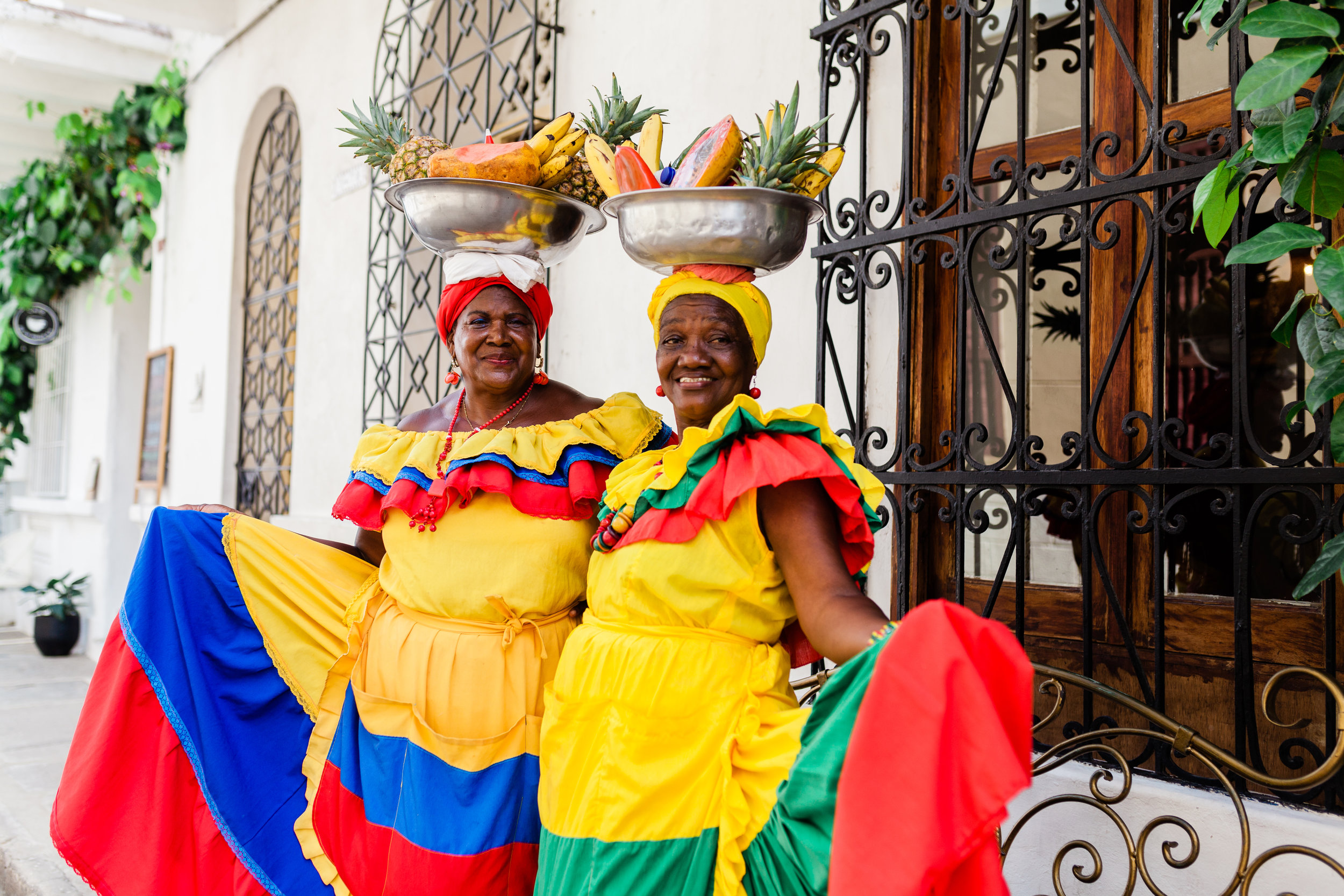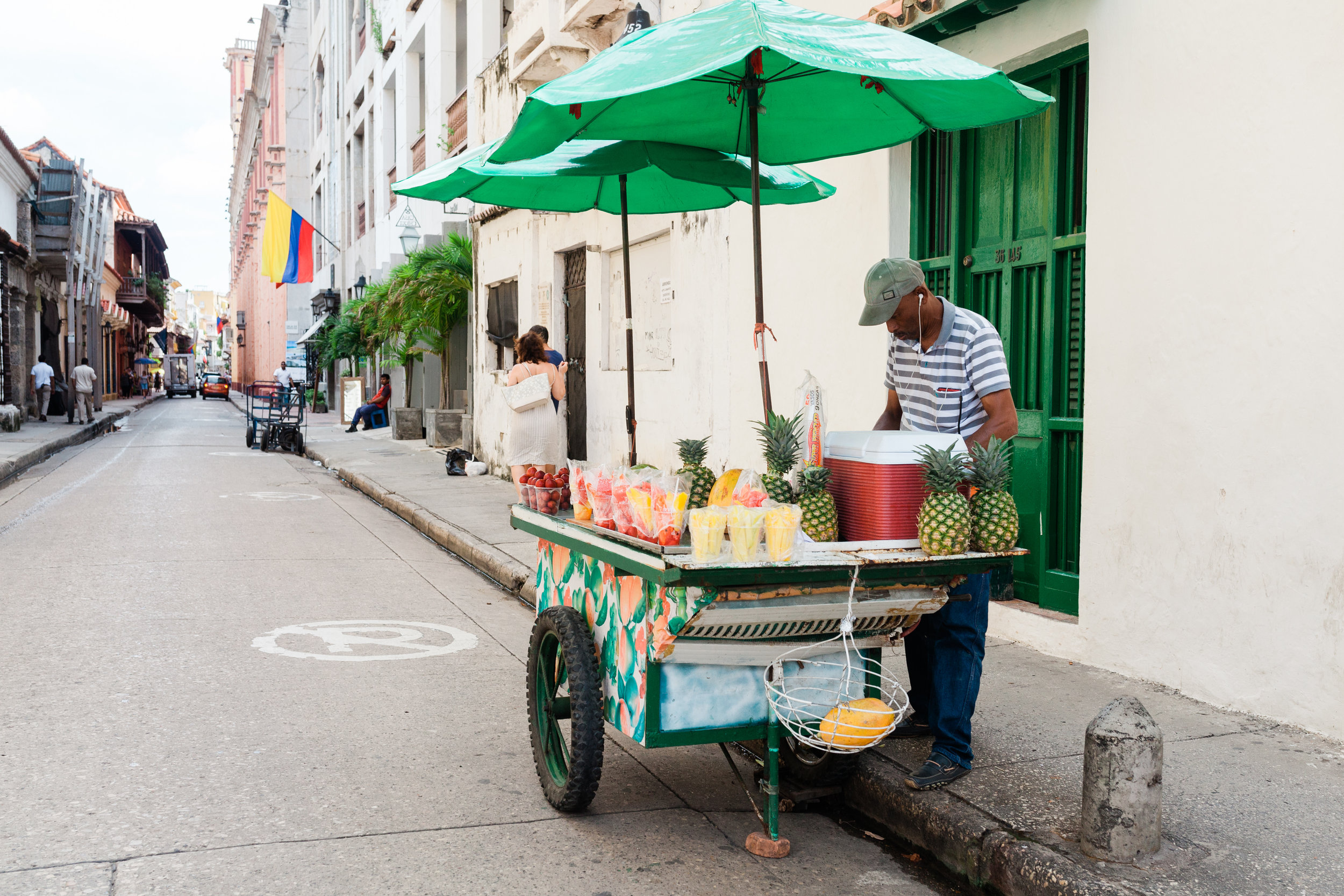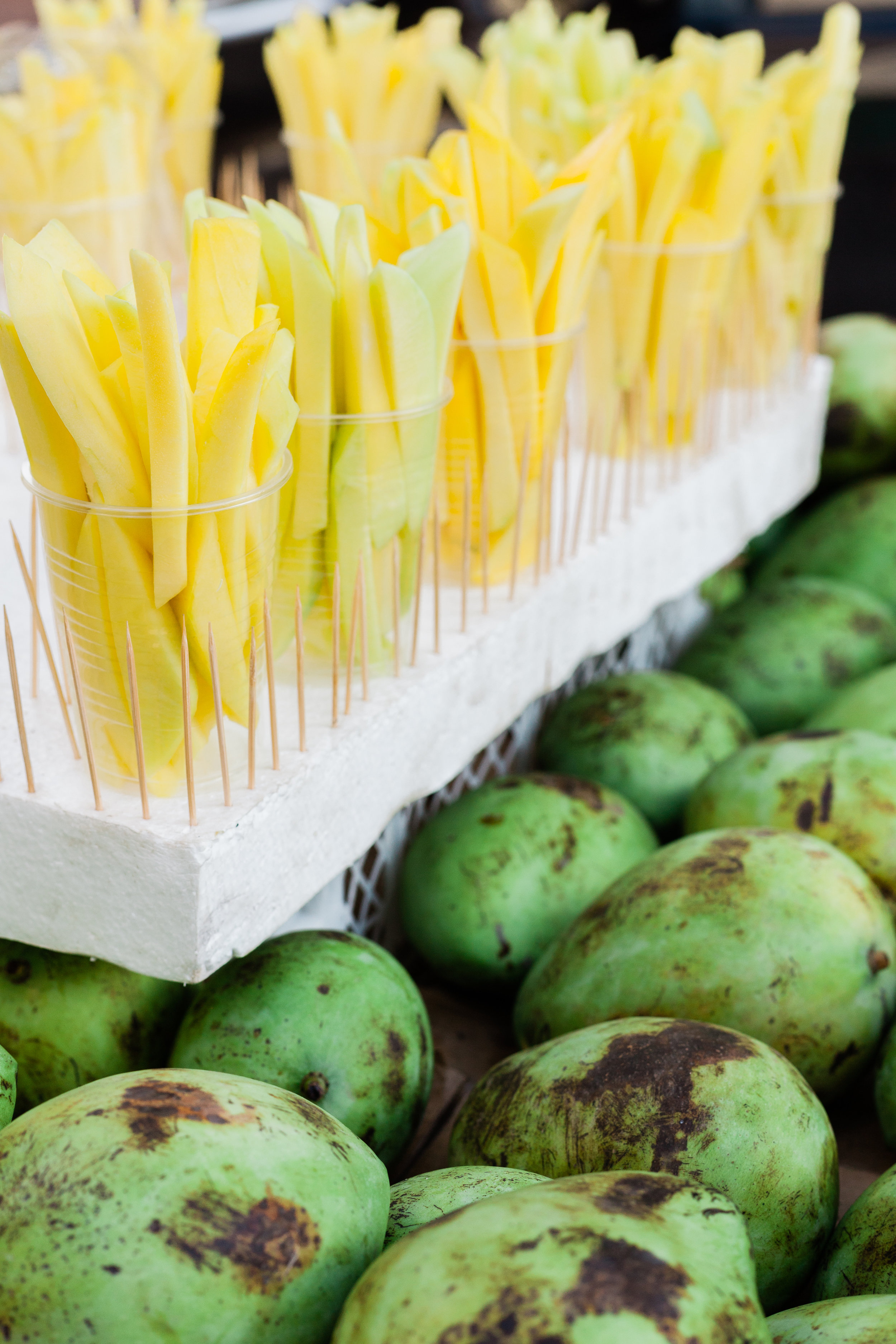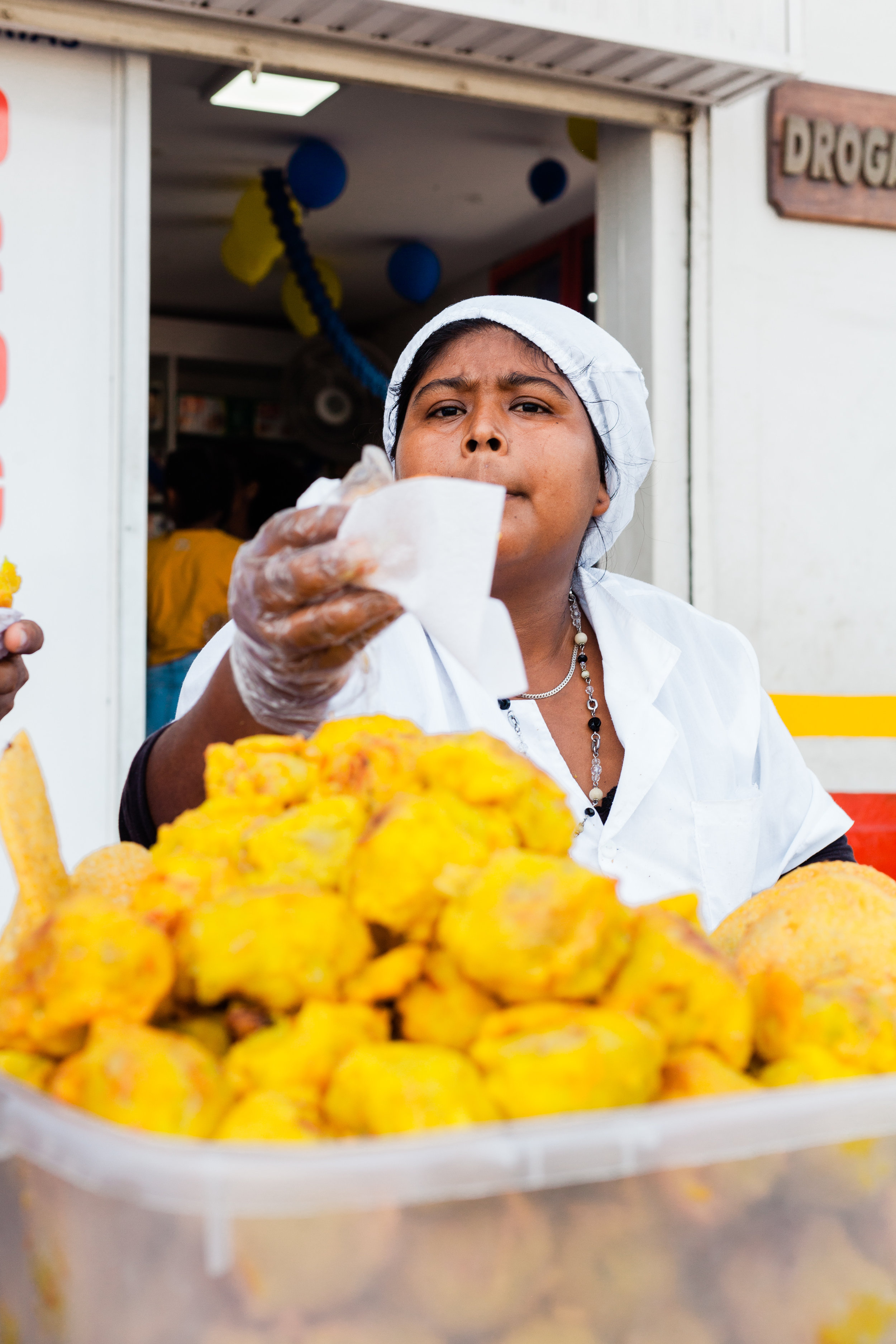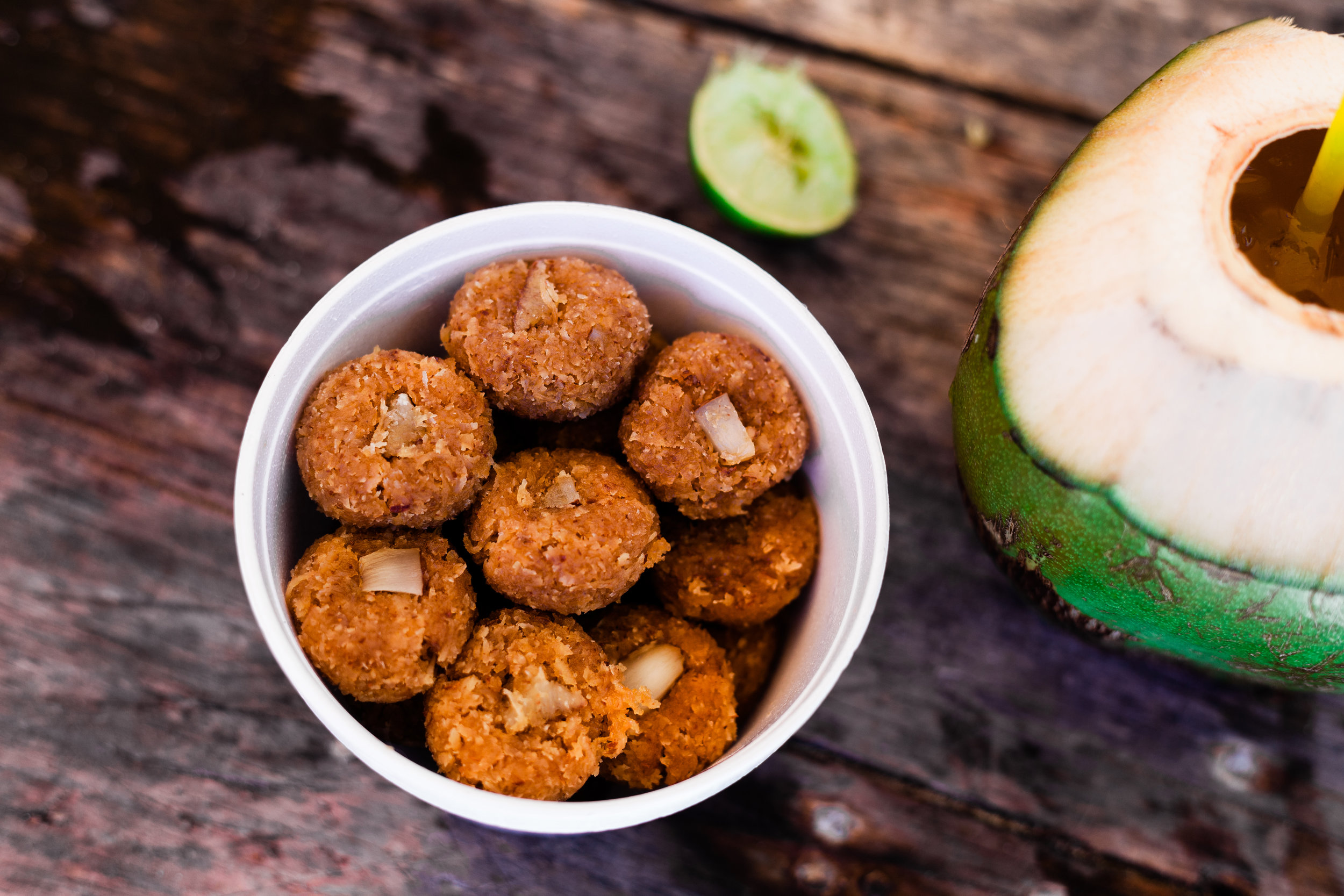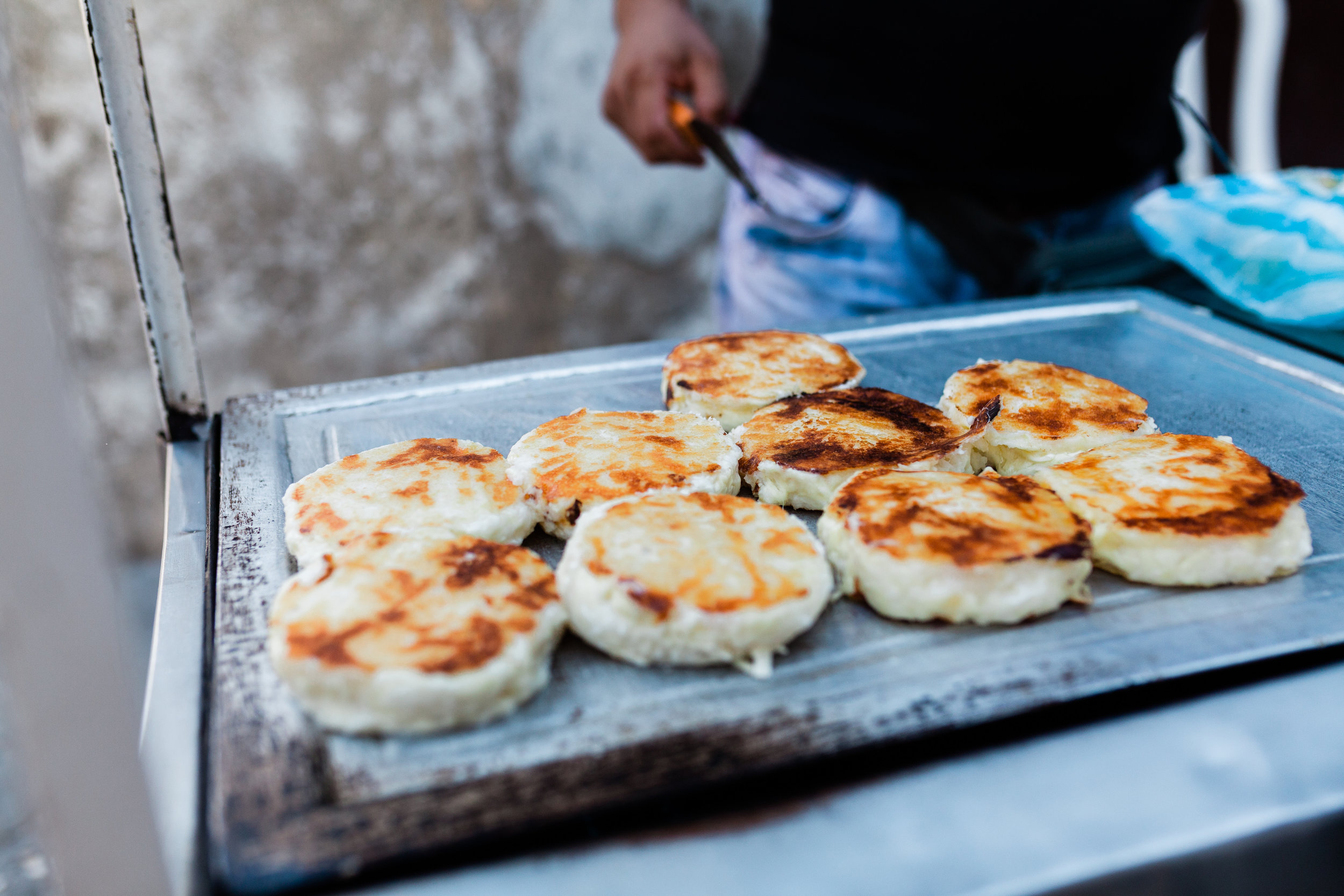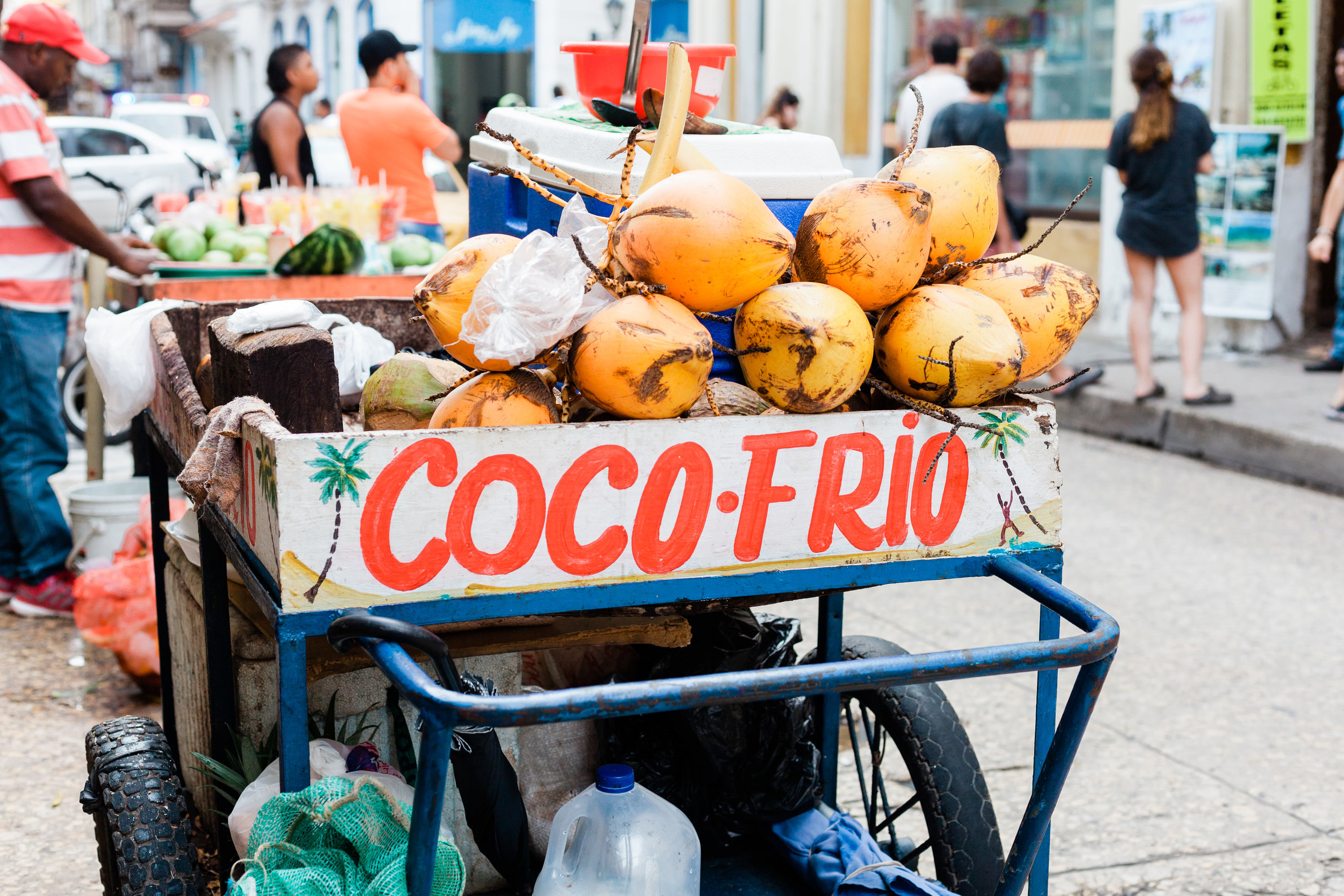There’s nothing worse than food poisoning for a traveler. I once spent three days in a Bangkok hostel after eating bad street meat. I arrived into the city, jumped off the bus, and ate the first thing crossed my path. What I didn’t know, was the meat had been sitting out in the sun for hours, and I spent several hours later hugging the toilet. Being sick away from home while abroad is something everyone wants to avoid, so we spoke to registered dietitian Elise McVicar to get the scoop on how to stay food safe when traveling. Spoiler: it even includes how to be open to and stay safe when eating street food!
Registered dietitian nutritionist, Elise McVicar, shares tips to help you stay in tip-top health while traveling, so you can enjoy your well-deserved break.
1 - Hydrate, hydrate, hydrate!
“This is one of THE most important things you can do while travelling. Starting with making sure you are hydrated before you step on the plane,” says Elise. “Flying is such a dehydrating experience, you don’t want to be playing catch up from the get go. Airplane air is very low humidity which might not seem like an issue but when the air is too dry, the mucus in your airways can’t protect as well against the viruses trying to enter your body. Focusing on hydration on your flight can help you stave off sickness before you arrive. 500ml or 16oz per hour of travel is a good guide for staying on top of it. Yes, it’s a lot but it’s so worth it!
Now, depending on where you’re travelling to, you may have to drink bottled water when you get to your destination. This is something you should research before you go so you don’t have to learn through any negative digestive experiences, if you know what I mean. If you do need to drink bottled water, try to avoid ice as well, as that is typically made from tap water too.
In addition if you’re in a humid, hot destination you have to pay attention to hydration daily. Your body will be sweating more than normal to try to cool you down so to avoid headaches, dizziness and fatigue, drink up!”
2 - Eat the rainbow!
“No, not skittles, but a whole variety of colourful fruits and vegetables, every single day. Different colours have different nutrients and you want to make sure you are getting as many vitamins, minerals and phytonutrients as possible to support your immune system and [overall] good health,” says Elise. “Particular nutrients you want to pay attention to are Vitamins A, C and E that act as antioxidants in the body. Look for deep purples, blues and reds to make sure you get them in abundance.”
3 - Do what you can to avoid food contamination.
“One of the biggest components of good nutrition is food safety. This HAS to be a priority when you’re traveling as it is one of the biggest causes of traveler’s diarrhea and gastrointestinal problems. To prevent any sickness from bad bacteria you should try to make sure that your food is fresh, thoroughly cooked, and served HOT!
Some people shy away from street food when traveling because they think this is where most food contamination can happen. However, it allows you to see just how clean the cooking and food storage areas are. [With street vendors, ask yourself], are they wearing gloves? Are they handling money AND food? Is the raw food left out or is it stored appropriately?
“Some people shy away from street food when traveling because they think this is where most food contamination can happen. However, it allows you to see just how clean the cooking and food storage areas are.”
Foods you may want to be wary of include salads that may have been prepared in local water; raw fruit and vegetables that you haven’t peeled or skinned yourself (if you have, they are usually fine); food that has been left out and exposed for a period of time, particularly buffets; and undercooked, raw, or reheated food (especially meat, fish, or rice).”
4 - Bring familiar foods.
“Or choose foods that you know. Just because you’re going somewhere new doesn’t mean you have to leave everything from home behind,” says Elise. “I like to pack some of my favourite snacks – not just for the flight, but for while I’m on the go too. My favourites are trail mix, nut butter packets, KIND or Luna bars, roasted paprika chickpeas and some dark chocolate! Most countries have restrictions on fresh fruits, vegetables and meat so don’t pack them to avoid some hefty fines and being held up on arrival.”
5 - Take your vitamins & supplements with you.
“Don’t be afraid to take foods you usually have at home (like multivitamins, fish oil, zinc, protein powders, etc.) with you while traveling! It’s good to maintain your nutrition routine as much as possible. You’re constantly being exposed to new foods and drinks while travelling, so some consistency is key!”
6 - Moderate your alcohol intake.
“I hate to be the bearer of bad news, but alcohol weakens the immune system and makes your body more susceptible to picking up germs and bacteria that will make you sick. Don’t get me wrong, I love cocktails and a good glass of wine, but try not to have too many binge nights and alternate your alcoholic beverages with a glass of water’ too,” says Elise.
Are you doing any of these things already? What can you implement the next time you hit the road? Happy travels!
Contributor: Elise McVicar
Elise is a Registered Dietitian Nutritionist (RDN) with a Masters of Science degree in nutrition.
After working with collegiate and professional athletes for years, Elise took her expertise to the general population and embarked on a private practice. Specializing in healing relationships with food and establishing healthy, sustainable lifestyles. Elise’s greatest joy comes from helping facilitate her clients mind and body transformation from restrictive eating and negative body image, to an empowered, thriving and healthy life.
Follow her on Instagram @elisemcvicar for inspiring and educational content. Or her website www.withelise.com.


